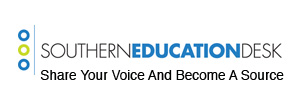Resources
“What You Need To Know” Guides: Background briefs on some of the most important issues in education around the South.
School Choice, Charter Schools and Vouchers: School choice, in its broadest sense, is a simple idea: that families should be able to choose what school their children attend. Educational choice takes many forms in school districts around the United States, but two types of educational options currently dominate the political debate over school choice: charter schools and vouchers.
The Legacy of School Segregation: Since the 1980s, school integration in the South has eroded as black students and the growing population of Latino students become more isolated from white students. In many states that had achieved rapid integration, the reversal was commensurately rapid. Varying degrees of actual or de facto segregation remain.
Early Childhood Education: Early childhood education is the teaching of children from birth up to age eight. Head Start, childcare, public and private preschools as well as traditional K-2 classrooms are all examples of early childhood education providers. Access and quality of early childhood education varies from institution to institution and from state to state.
School Accountability and No Child Left Behind: The No Child Left Behind Act (or NCLB) is a landmark piece of federal legislation that ushered an era of data-and standards-based accountability into American education. The law dramatically increased the federal role in the oversight of public education. And it is both credited for creating a new focus on student achievement and blamed for generating an over-reliance on standardized testing in schools.
Teacher Quality and Teacher Evaluations This is a hot topic and the debate continues to grow more heated. Teacher Quality broadly defines a set of measures ensuring that employees or applicants for jobs in education fields are proficient. Quality measures are especially visible as applied to teachers in grades K-12, but also apply to Pre-K and higher education. These measures examine whether children are learning and retaining appropriate information for their grade levels based on instruction. Teacher quality measures and controls vary by state. Regulating teacher quality at a governmental level started fairly recently.
School Funding in the South: Especially in times of economic downturn, tax-funded budgets for government services are squeezed, and school budgets in the South are certainly no exception. Whether this seemingly perpetual belt-tightening is due to tax-averse elected leaders paying only lip-service to education, or to legitimately constraining fiscal realities, or to some mix of both, probably depends on one’s political and policy views. And of course, it’s a fact that money can be spent well or spent poorly.
Poverty and Education in the South: The American South long has been the poor cousin to the northern states. And the legacy of slavery and racial inequality in the region has hampered African-American efforts to become full partners in sharing the benefits that accrue to being citizens of the largest single-nation economy in the world. Even with 20th Century Supreme Court decisions that struck down discriminatory policies, African-Americans still suffered economically, socially and educationally.
STEM Education: Deep concern continues to grow in the United States that our schools are not preparing a sufficient number of students, teachers, and practitioners in the areas of science, technology, engineering, and mathematics. Studies have shown that a large majority of secondary school students fail to reach proficiency in math and science, and many are taught by teachers lacking adequate subject matter knowledge.
Summer Learning Loss: Ah, summer. A time for students to relax, join the family on a road trip, get a summer job…and forget much of what they learned during the school year? It’s called summer learning loss and research shows students lose 2.6 months of grade level equivalency in mathematical computation skills during the summer months. As for reading, the numbers vary greatly depending on the socioeconomic status of the student. Students from low-income families generally lose 2 months of reading skills, whereas students from middle-income families experience improvements in their reading performance.
Credit Recovery: In its most basic definition, credit recovery is a way for students who have fallen behind to get back on track and obtain their high school diplomas, but what exactly is credit recovery, why is it so controversial, and how much do students actually learn through credit recovery, especially online credit recovery programs?



Comments